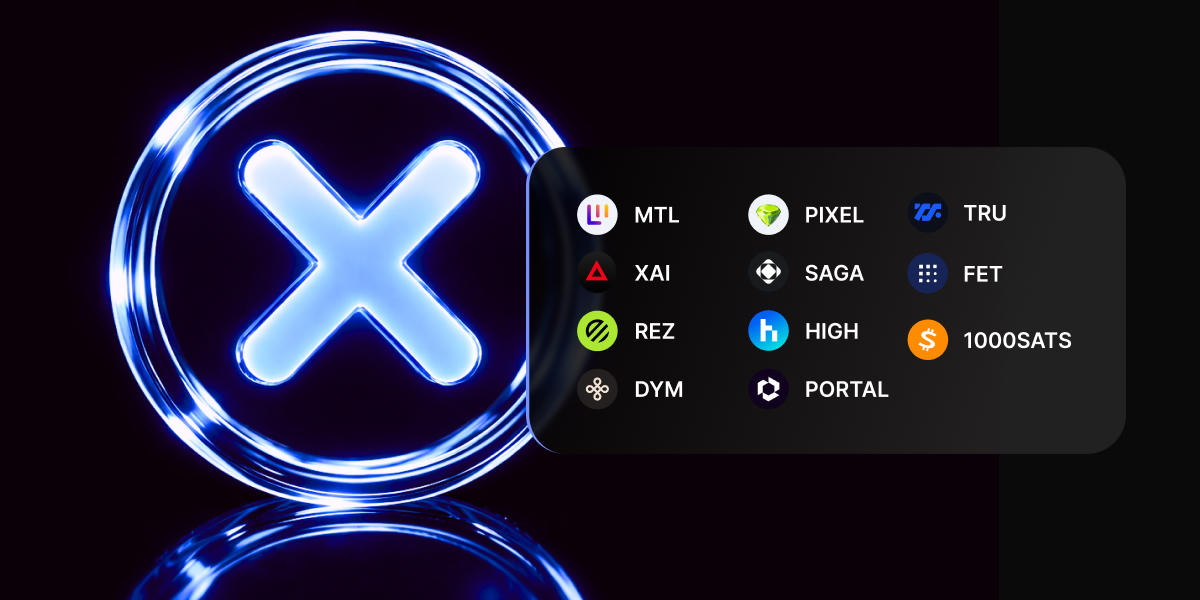One of the measures that these organisations employ are KYC processes. But what is KYC in crypto? This acronym means Know Your Customer, and ensures that the person managing positions, trades, or funds is the one authorised to do so.
Since going mainstream, the cryptocurrency market and exchanges have adopted these procedures to avoid illegitimate activity, protect their clients and minimise customer risk. Also, since cryptocurrencies have become a legitimate investment vehicle, many governments worldwide have introduced legislation to avoid the misuse or abuse of these crypto assets.
Digital Economy Foundations: An Introduction to Cryptocurrencies
Cryptocurrencies are digital currencies that are usually encrypted, peer-to-peer, decentralised and kept on a distributed ledger or blockchain. They can be used in various financial transactions, including retail purchases, investments or just as a store of value.
Holders of these digital assets usually purchase their cryptos via crypto exchanges with FIAT currency or by exchanging them for other cryptocurrencies. Some crypto traders keep their assets in the crypto exchange account, but it is strongly recommended to keep digital assets in crypto wallets that are much more secure. Crypto wallets can be paper, digital or physical.
When you sign up to buy crypto from most crypto exchanges, you will be asked to go through a crypto KYC process. This may involve a robust identity verification process. This is to verify a customer’s identity and minimise their risk of being defrauded or their funds being used or originating from illegal activities.
If you find or are approached by an organisation, exchange or broker that allows you to buy crypto without KYC, be careful, as you might be engaging in illicit transactions and may face numerous legal challenges and regulatory risks.
KYC Conceptualised: Unraveling the Term

KYC: Definition and Historical Context
The KYC process guidelines were drafted in the U.S. in the 1970s when the Bank Secrecy Act was passed. The intent was to prevent money laundering risks. The guidelines were expanded in the past, including after the 2008 global financial crisis.
KYC not only ensures that client funds are secure but also that they are not being used for illegal activities. As cryptos matured into valid investment vehicles, more governments have increased their crypto transaction monitoring, and companies must meet these legal expectations to remain operational.
The Central Objectives and Imperatives of KYC
The central objectives of the KYC process is to:
- Verify customer identity: This ensures that you aren’t a victim of identity theft or that unauthorised individuals are using their account or funds maliciously.
- Customer risk profile: this evaluates the customer risk for suspicious activity and financial crime.
The primary imperative of KYC compliance requirements is to ensure that funds are not used for money laundering, terrorist financing or other illicit cryptocurrency transactions. As crypto transactions are often anonymous transactions, verifying customers is extremely important to avoid these potentially harmful activities.
Applicability of KYC in the Cryptocurrency Context

The Paradox: KYC Necessity in a Decentralized Paradigm
Yes, I can see your objection – “What is KYC in crypto? Crypto transactions are supposed to be anonymous!” They still are. The only identifying item on the blockchain is your public address. The crypto KYC process does not equate to crypto transaction monitoring.
Operational Mechanics of KYC in Cryptocurrency Platforms
Many crypto exchanges, crypto firms and financial institutions offering cryptos already have KYC procedures in place to have regulatory compliance and protect their clients against various risks. KYC measures may include identifying customers, to ensure that only authorised people are allowed to use the account, and funds and anti money laundering AML inquiries, to ensure that the funds being used are being deposited and withdrawn to a legitimate sources.
This also helps the crypto financial system remain healthy and avoid price manipulation such as so-called “pump and dump” schemes.
It’s worth noting that the KYC verification process may be less involved when dealing with crypto exchanges or equivalent organisations compared to financial institutions and other lenders.
The process generally involves:
- Customer verification: this requires a valid ID or passport
- Proof of address: you will be asked for a utility bill that is no older than six months
- Proof of source of funds: you may have to provide bank statements, pay slips or other document verification for the source of your funds.
Merits of KYC Implementation in the Crypto Sphere

As stated above, KYC programs are designed to ensure the legitimacy of a market and avoid exposing clients to illegal activities. KYC checks not only protect the clients but also the entire crypto space. If a market is exposed to financial crime like money laundering, government scrutiny increases, crypto exchanges face stricter regulations and crypto transaction monitoring increases and become more difficult.
Cultivating Trust within the Cryptocurrency Ecosystem
Anti money laundering measures, adherence to federal regulations and keeping up with the evolving international guidelines regarding these issues, ensures that the crypto industry continues unencumbered. This includes crypto exchanges, financial institutions and other entities that offer crypto related services.
KYC procedures also help clients filter through bad actors more easily. Transparent regulated cryptocurrency exchanges, are more likely to have KYC compliance and have KYC measures in place. Less regulated organisations on the other hand would be more likely to try and avoid KYC regulations.
Guarding Against Malfeasance and Associated Risks
During the early years of crypto exchanges, transaction monitoring was at a minimum and KYC in crypto was practically non-existent. Crypto exchanges where left venerable, as were their clients and we saw many instances where people lost funds.
Illicit cryptocurrency transactions totaled $4.6B back in 2017, this included theft of funds, terrorism financing, malware (or ransomwares attacks) and scams.
Although the number of those transactions increased so has the adoption of cryptocurrencies. Proportionally in fact, transaction volume increase 567% from 2020 to 2021, but access to a financial crimes enforcement network, ensured that illicit activity only increased 79% YoY. And many cryptocurrency exchanges that require KYC have made streamlining transactions a priority.
Potential Risks and Scrutiny Surrounding KYC
Another reason to seek a legitimate and transparent crypto exchange or crypto financial provider, is data security. Once you meet the KYC requirements and AML regulations, your data needs to be secure, safe and the infrastructure holding your information maintained to current best practices.
Data Confidentiality and Privacy Implications
Data breaches are not uncommon in our era. We’ve seen billion dollar companies lose valuable information. And this is one of the primary risks when you are asked to complete your KYC requirements.
But most if not all reputable companies, exchanges and providers dedicate inordinate amounts of funds to develop or purchase sophisticated KYC software.
Centralisation Apprehensions in a Decentralised World
Many of you might think that going through a Know Your Customer process, is counterintuitive for a financial product that is decentralised, peer-to-peer and largely anonymous. Especially if you have a crypto wallet that isn’t connected to the internet.
But KYC requirements aren’t in place to monitor serious crypto traders or investors. They are in place to ensure that the system isn’t manipulated or the people using digital asset services aren’t using their funds for nefarious reasons.
It also helps you identify a less than creditable cryptocurrency exchange, when you are looking to buy or sell your digital assets. If the credibility of the industry as a whole is further boosted we could see smart contracts become mainstream or crypto ATMs on every corner, not only in the biggest cities of the world.
Regulatory Perception and Stance on Cryptocurrency KYC
As you would expect regulators applauded the efforts crypto providers took to follow KYC guidelines. This can help legitimise cryptocurrencies as an investment and trading vehicle, and when a cryptocurrency exchange follows the same rules as other financial institutions, the profile and value of most if not all cryptocurrencies will likely increase.
Prospective KYC Alternatives and Evolutionary Trends
Technology progresses at a breakneck pace. Eventually there will be more automated, user-friendly and secure KYC standards and practices. Know Your Customer KYC might be completely outdated and replaced by other methods of identity verification, using AI or even smart contracts.
Decentralised Identity Verification: A Novel Approach
Cryptocurrency early adopters and developers have been on the forefront of technological advances, so it make sense that eventually they would provide a solution that marries both the decentralised ethos of cryptocurrencies and the imperative for robust KYC policies.
Enter decentralised identity verification.
Using a local piece of software, on the user’s personal device, meaning the control of data and identity is held by the owner, not by an organisation.
One such solution is being offered by the company that democratised and made personal computers accessible to everyone – Microsoft – in the form of their Microsoft Entra Verified ID.
In fact if you have a wallet app on your phone you might be using a form of this right now. Most modern secure NFC apps, use a local way to validate the user’s identity.
Emerging Trends: The Notion of Self-sovereign Identity
Self-sovereign Identity, or SSI for short, seeks to keep a person’s digital identity and personal information, well personal. The idea is to decentralise the “login” monopoly now held by huge corporate entities such as Facebook, Google and others, while centralising accessibility to a variety of apps, websites and services.
If that’s difficult to understand, let’s say you don’t use Google sign in or social sign in. This would require you to sign up for an account from every single website and app you use. SSI seeks to change that.
Concluding Remarks: Striking a Balance Between Cryptocurrency Security and Privacy
KYC due diligence may seem like an invasion of privacy especially for a group of individuals that laud privacy, anonymity and the decentralisation of the financial system.
But ultimately this serves the community and the industry as a whole. It ensures longevity, safety, security and avoids future government scrutiny.
Which documents are conventionally required for KYC on cryptocurrency platforms?
Usually ID, passport, a bank statement and a utility bill. But further documents may be required.
How long is the typical duration for the KYC process on cryptocurrency exchanges?
This can very greatly depending on the exchange and the KYC software they use.
Why do certain cryptocurrency platforms operate devoid of KYC?
Some refuse to comply out of principle, others because they are not legitimate entities regulated by a central authority coined with protecting investors and the stability of the financial system.
What inherent risks are associated with submitting my data for KYC on cryptocurrency platforms?
The only risk is your information being leaked via a malicious attack. Most brokers and exchanges invest huge budgets to avoid these types of attacks.
The content provided here is for informational purposes only. It is not intended as personal investment advice and does not constitute a solicitation or invitation to engage in any financial transactions, investments, or related activities. Past performance is not a reliable indicator of future results.
The financial products offered by the Company are complex and come with a high risk of losing money rapidly due to leverage. These products may not be suitable for all investors. Before engaging, you should consider whether you understand how these leveraged products work and whether you can afford the high risk of losing your money.
The Company does not accept clients from the Restricted Jurisdictions as indicated in our website/ T&C. Some services or products may not be available in your jurisdiction.
The applicable legal entity and its respective products and services depend on the client’s country of residence and the entity with which the client has established a contractual relationship during registration.




